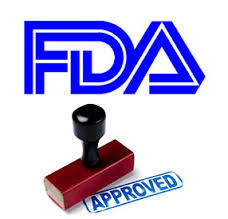- Home
- Editorial
- News
- Practice Guidelines
- Anesthesiology Guidelines
- Cancer Guidelines
- Cardiac Sciences Guidelines
- Critical Care Guidelines
- Dentistry Guidelines
- Dermatology Guidelines
- Diabetes and Endo Guidelines
- Diagnostics Guidelines
- ENT Guidelines
- Featured Practice Guidelines
- Gastroenterology Guidelines
- Geriatrics Guidelines
- Medicine Guidelines
- Nephrology Guidelines
- Neurosciences Guidelines
- Obs and Gynae Guidelines
- Ophthalmology Guidelines
- Orthopaedics Guidelines
- Paediatrics Guidelines
- Psychiatry Guidelines
- Pulmonology Guidelines
- Radiology Guidelines
- Surgery Guidelines
- Urology Guidelines
FDA approves new drug for osteoporosis in women with high fracture risk

The U.S. Food and Drug Administration has approved Evenity (romosozumab-aqqg) to treat osteoporosis in women with a history of osteoporotic fracture or multiple risk factors for fracture, or those who have failed or are intolerant to other osteoporosis therapies.The FDA granted the approval of Evenity to Amgen.
More than 10 million people in the U.S. have osteoporosis, which is most common in women who have gone through menopause. People with osteoporosis have weakened bones that are more likely to fracture.
“Today’s approval provides women with postmenopausal osteoporosis who are at high risk of fracture with a new treatment that will reduce this risk,” said Hylton V. Joffe, M.D, M.M.Sc., director of the Center for Drug Evaluation and Research’s Division of Bone, Reproductive and Urologic Products. “But Evenity may increase the risk of heart attack, stroke and cardiovascular death so it’s important to carefully select patients for this therapy, which includes avoiding use in patients who have had a heart attack or stroke within the previous year.”
Evenity is a monoclonal antibody that blocks the effects of the protein sclerostin and works mainly by increasing new bone formation. One dose of Evenity consists of two injections, one immediately following the other, given once a month by a health care professional. The bone forming effect of Evenity wanes after 12 doses so more than 12 doses should not be used. If osteoporosis therapy is needed after the 12 doses, patients should begin an osteoporosis treatment that reduces bone breakdown.
The safety and efficacy of Evenity were demonstrated in two clinical trials involving a total of more than 11,000 women with postmenopausal osteoporosis. In the first trial, one year of treatment with Evenity lowered the risk of a new fracture in the spine (vertebral fracture) by 73% compared to placebo. This benefit was maintained over the second year of the trial when Evenity was followed by one year of denosumab (another osteoporosis therapy) compared to placebo followed by denosumab. In the second trial, one year of treatment with Evenity followed by one year of alendronate (another osteoporosis therapy) reduced the risk of a new vertebral fracture by 50% compared to two years of alendronate alone. Evenity followed by alendronate also reduced the risk of fractures in other bones (nonvertebral fractures) compared to alendronate alone.
Evenity increased the risk of cardiovascular death, heart attack and stroke in the alendronate trial, but not in the placebo trial. Therefore, Evenity contains a boxed warning on its labeling stating that it may increase the risk of heart attack, stroke and cardiovascular death and should not be used in patients who have had a heart attack or stroke within the previous year. Health care professionals should also consider whether the benefits of Evenity outweigh its risks in those with other risk factors for heart disease and should discontinue Evenity in any patient who experiences a heart attack or stroke during treatment.
Common side effects of Evenity included joint pain and headache. Injection site reactions were also observed.

Disclaimer: This site is primarily intended for healthcare professionals. Any content/information on this website does not replace the advice of medical and/or health professionals and should not be construed as medical/diagnostic advice/endorsement or prescription. Use of this site is subject to our terms of use, privacy policy, advertisement policy. © 2020 Minerva Medical Treatment Pvt Ltd